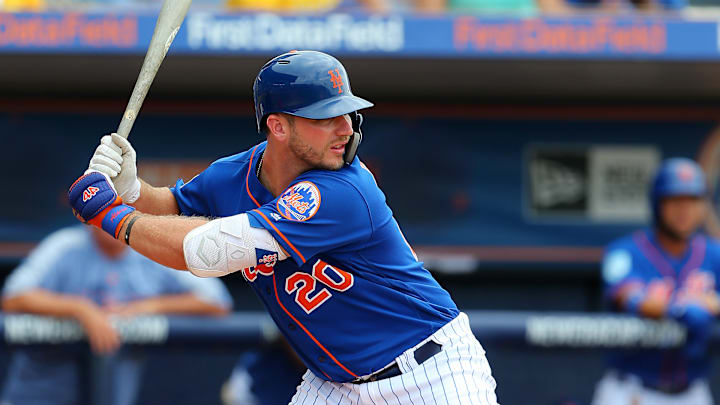3. Michael Conforto, 2017.
The Mets had a plethora of outfielders heading to Port St. Lucie in 2017. The team had just signed Yoenis Cespedes to a contract worth 4-years $110 million. Curtis Granderson was in the final season of his 4-year contract, Juan Lagares was penciled in as a defensive replacement, and Nimmo had only played in 32 major league games. The question during the offseason was if the Mets would trade Jay Bruce with one year remaining on his contract or give the final outfield spot to Michael Conforto, who struggled immensely in 2016.
Alderson decided not to trade Bruce and committed to him as the opening-day right fielder. This left Conforto blocked in the outfield by veteran players, meaning he would likely be optioned to AAA for the start of 2017. However, the 24-year-old once heralded top prospect was determined to prove the front office wrong and avoid taking the long flight to Las Vegas. He hit .300 with 3 home runs and 5 RBI through 24 games, earning himself consideration for the fourth outfield job.
By the time opening day came around, Lagares and Nimmo were both placed on the injured list. This gave the organization no other choice but to bring Conforto back north with them to play the Atlanta Braves. While it was widely perceived Conforto would return to AAA once Lagares was activated by mid-April, the Mets were glad the 24-year-old never appeared in a game for the Las Vegas 51's in 2017. Not only was Conforto's performance stellar hitting .279 with 27 home runs and 68 RBI, but he earned an all-star nod and became the Mets' everyday leadoff hitter. Had Conforto not raked in spring training, this breakout season would have been delayed.
